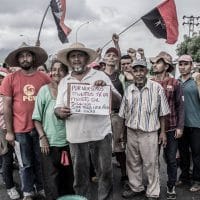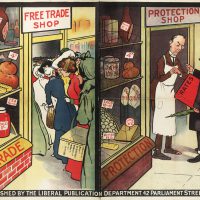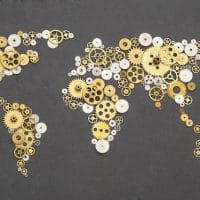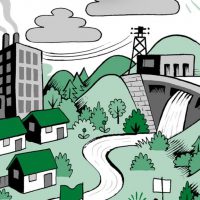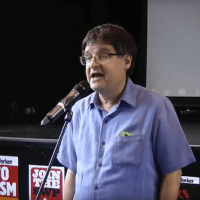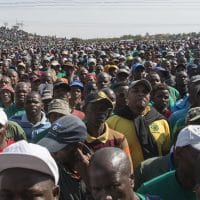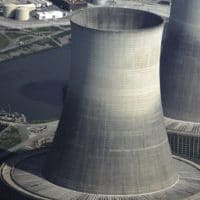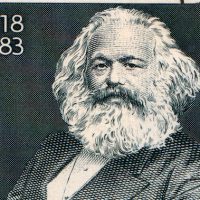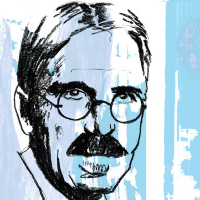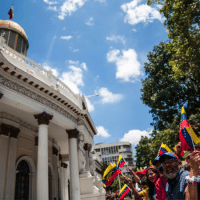-
Social Imperialism in the 21st century
A sober analysis of the positions of Owen Jones and Paul Mason on a wide range of issues shows that they are in fact distinctly un-radical, frequently opportunist in nature, and (particularly in Mason’s case) openly reactionary and imperialist.
-
We defend the Constituent Assembly
The national leader of the Landless Rural Workers Movement (MST), the economist João Pedro Stédile, is at the frontline for the liberation of former President Luiz Inácio Lula da Silva. He predicts that if Lula’s candidacy is prevented, a political crisis will become even more acute.
-
How to Reactivate Chavismo
Recovering the socialist character of Chavismo in Venezuela depends on activating its latent revolutionary component. This, in turn, hinges on re-encountering the aspiration toward substantive democracy and communal control of production that was once more present in the movement.
-
Three globalizations, not two
The conventional wisdom is there have been two globalizations in the modern era. This paper challenges that view and argues there have been three globalizations, not two.
-
A nasty witch and apes—not from Oz
Even little victories are rare in the East German industrial landscape. But it is always worthwhile to oppose evil witches and even defy autocrats wearing golden caps full of diamonds and rubies.
-
Globalization checkmated? Political and geopolitical contradictions coming home to roost
The deepening of economic globalization appears to have ground to a halt and the process may even unravel a little. The sudden stop has surprised economists, whose belief in globalization has strong parallels with Fukuyama’s (1989) flawed end of history hypothesis.
-
Making War on the Planet: Geoengineering and Capitalism’s Creative Destruction of the Earth
The enormous dangers that rapid climate change present to humanity as a whole, and the inability of the existing capitalist political-economic structure to address them, symbolized by the presence of Donald Trump in the White House, have engendered a desperate search for technofixes in the form of schemes for geoengineering, defined as massive, deliberate human interventions to manipulate the entire climate or the planet as a whole.
-
Marxian theory & eco-revolution – Prof. John Bellamy Foster
The Marxism 2018 festival, hosted by the Socialist Workers Party (SWP), took place last week in a context of deepening political polarisation across the world.
-
Lula or nothing? The dilemmas of the Brazilian left
The urgent task of defeating the right in the upcoming elections cannot come at the price of compromising the future. If the new radical left fails to put forward a clear critique of Lula’s legacy the dissatisfaction with the intrinsic limits of neo-developmentalism will be easily captured by new voices on the right.
-
The myth of work requirements
The savings that states have projected from Medicaid work requirements come from reducing Medicaid coverage rather than by lifting people out of poverty.
-
The Texas counter-revolution of 1836
This is a spot-on history of the birth of the American empire. But beyond recounting the regional and national events celebrated on the monument, re-viewing the Texas revolution in a world-historical perspective offers a far more insightful understanding of the conflict that occurred in northern Mexico in the 19th century.
-
A spectre is haunting us: it’s the past weighing like a nightmare on the present
The rise of extreme right wing politics is a response by sections of the ruling classes internationally to the economic stagnation.
-
The chicken game and rotten eggs
Germany’s politicians played the chicken game last week, testing which party, Angela Merkel’s Christian Democratic Union or its Bavarian “sister party”, Horst Seehofer’s Christian Social Union, would be the first to swerve.
-
Nuclear power: private profits, social costs
Nuclear power is enormously expensive and yet successive U.S. governments, including that of President Donald Trump, have supported the industry in many ways. The net result is that various costs are passed on to society at large, while the profits accruing from this pursuit are privatized.
-
Transformation problem unraveled
Moseley’s interpretation establishes the internal coherence of Marx’s theory, thereby creating a more solid basis for its further development on our own, Marxist, terms. Stated differently, there is no need to import unrealistic, abstract-ideal concepts from other economic theories in an attempt to “modernize” Marxist economics.
-
Willetts the Conqueror (part 6) – Academic freedom
Today, academic freedom is increasingly under threat from marketisation, in particular as a result of the mutually reinforcing pressures on academics to meet instrumental, neoliberal economic objectives, imposed from above via national-level performance management systems–the TEF, REF and KEF–and from below through local-level, bureaucracy-heavy managerialism.v
-
Amazon’s fusion with the state shows neoliberalism’s drift to neo-fascism
MPN spoke to Yasha Levine, the author of “Surveillance Valley,” and Monthly Review editor John Bellamy Foster about the rise of the Amazon.com empire and the merger of Big Data, finance capitalism, and the U.S. state apparatus.
-
Escraches come north: “Incivility” or an end to impunity?
We need to remember that these protests aren’t about political views: they’re about government officials violating international law, U.S. treaty obligations, and basic human rights.
-
Venezuela’s embarrassment of riches?
Letting the law of capitalist value govern society makes building socialism almost impossible because, even if the general guidelines of capitalist value seem to be acceptable, all it takes is for the market to plunge for you to lose your bearings entirely.
-
June 2018: reflections on 1988 three decades later
Capitalism as a system functions irrationally because social and ecological concerns cannot be taken into account when making business decisions. Profits before all else.



